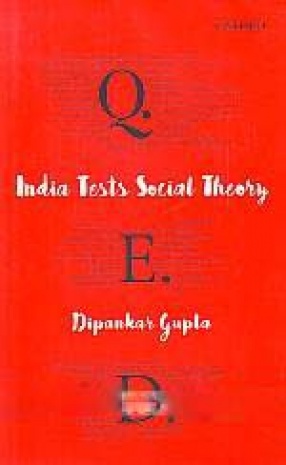
Dipankar Gupta

Showing all 12 books


Sociology in India enjoys a special epistemological location as the country is at once traditional and modern, rural and urban, and rich and poor. These contradictions pose a challenge to theory-building because they offer instances that are not easy to accommodate at a universal, analytical level.
Taking up unresolved conceptual issues in the fields of health, agricultural unrest, caste, and the understanding of modernity, this volume shows how the many ...
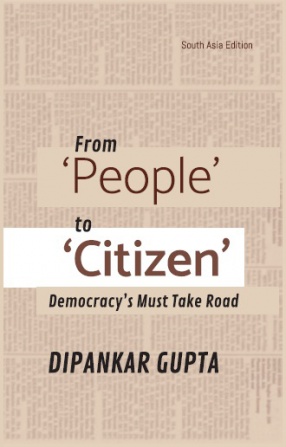
Dipankar Gupta brings together social theory with policy practice to enlarge our understanding of the difference that democracy makes to the life of a nation. Unlike nationalism, democracy takes our attention away from the past to the future by focusing on the specific concerns of 'citizenship'. Historical victories or defeats, blood and soil are now nowhere as relevant as the creation of a foundational base where individuals have equal, and quality, access to ...
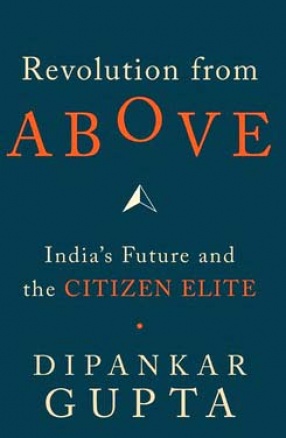
Is democracy driven by citizens or by the citizen elite? Acclaimed sociologist and author Dipankar Gupta argues that at every historical juncture when democracy made significant advances, it was the citizen elite, or the elite of calling, who led the charge, often going against the grain of popular demands and sentiments.
At its best, democracy does not reflect reality as much as it shapes and changes it. This requires active intervention by the citizen elite, ...

This unusual book extends the concerns of anthropology beyond the study of village life, rituals and caste observances to include considerations of the nation-state. Dipankar Gupta employs the analytical framework of the concept of culture combined with practical examples from everyday life to interpret Governance, citizenship and fraternity. He concludes that ostensibly political institutions have in fact deep cultural roots. Professor Gupta argues that the ...

Nineteen distinguished scholars come together in this volume to honour the outstanding contribution of Professor T.N. Madan to the development of sociology and social anthropology in South Asia. Anchoring themselves to Professor Madan's engagement with the sociology of kinship, religion and politics, and with the moral domain of human life, the contributors address the linked themes of tradition, pluralism and identity across a wide range of topics. These include ...
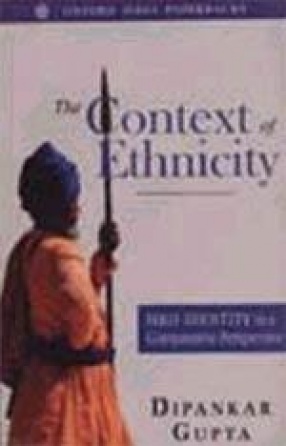
The Context of Ethnicity questions the widely held conceptualization of nation-states and ascriptive identities, through a study of Sikh extremism in the Punjab. The book argues that contrary to popular opinion, regional sympathies can co-exist with nationalist loyalty. In this book the author maintains that viewing ethnic conflict in terms of cultural exclusiveness and intolerance prevents us from comprehending how friends and enemies switch sides radically even ...
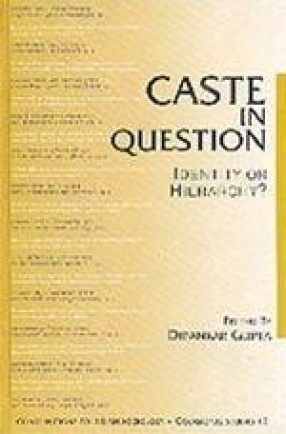
This important volume provides an alternative perspective on caste. It demonstrates that the traditional view of caste—as a single hierarchy, with Brahmins at the top and the untouchable castes at the bottom—is no longer valid. From politics to gender to economic interaction, the contributors reveal how the erstwhile single, pure hierarchical order is constantly being questioned and weakened. The essays in this volume argue for a different conceptualisation ...

Bringing together the essence of Beteille's ideas and writing, this collection of 19 essays has been specially selected and introduced by Dipankar Gupta. The book is divided into five sections, each of which is devoted to Professor Beteille's varied intellectual interests. The essays range from the significance of the comparative method, to ideas of equality and inequality, and finally to issues regarding civil society and institutional well-being. In each ...
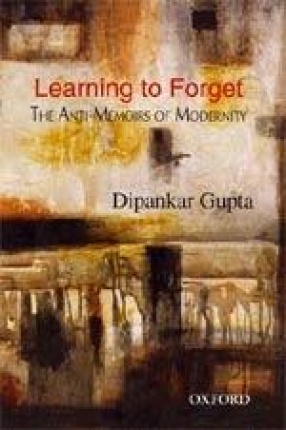
Dipankar Gupta argues that modernity should not be equated simply with such factors as industrialization and urbanization, nor with all that is contemporary. Instead, modernity should be seen primarily in terms of social relations, especially in the way it distances itself from the past by emphasizing intersubjectivity between individuals. Intersubjectivity is not understood here as a self-conscious philosophical disposition but rather as an untheorized, taken ...

The book details the pressures of contemporary competition that make it imperative for organizations to follow ethical business practices. Dipankar Gupta illustrates how ethical business practices. Dipankar Gupta illustrates how ethical business practices are good for the bottom line because they contribute to higher productivity and better risk management by introducing greater commitment and synergies between stakeholders. This book shows, step by step, how a ...


